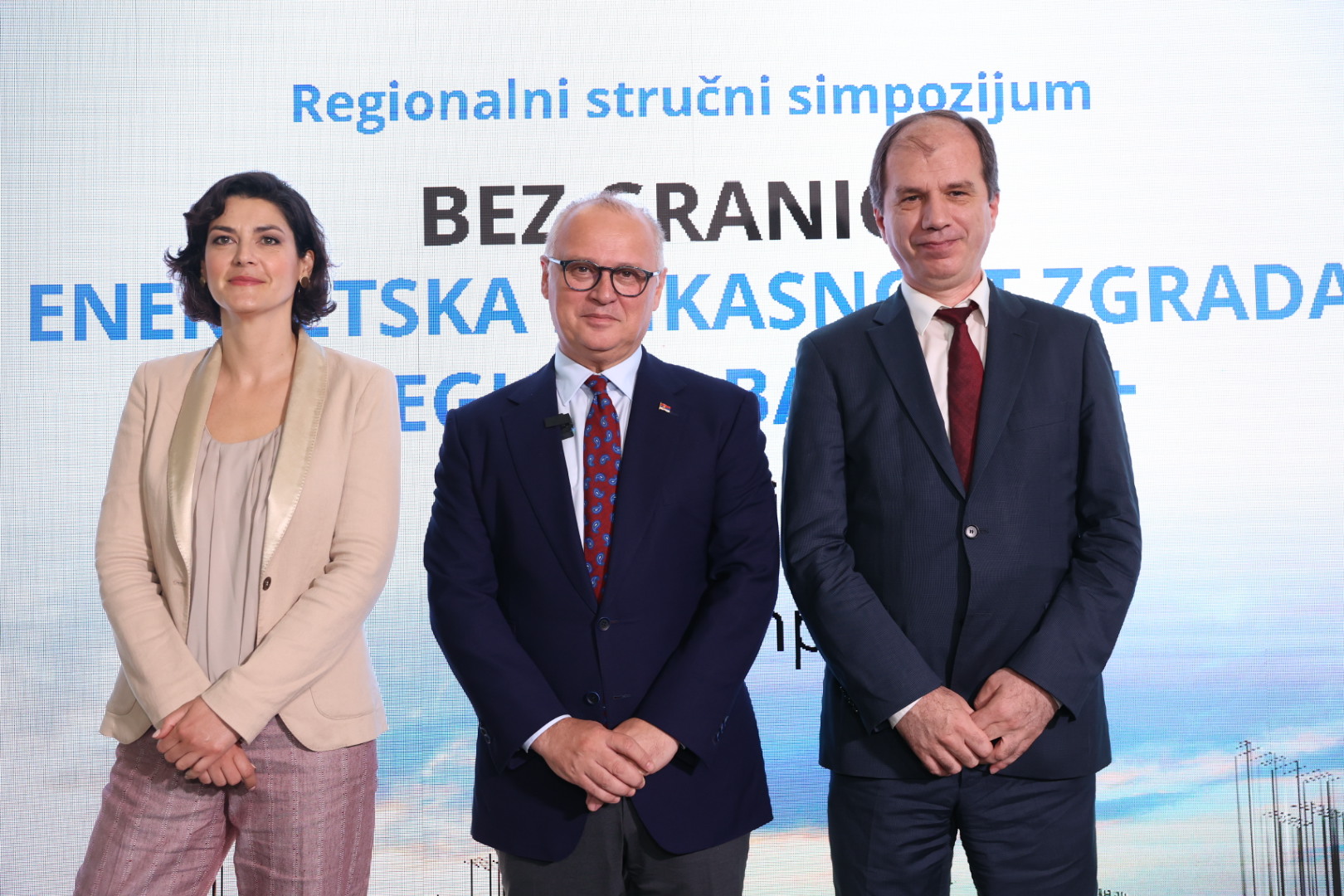Regional knowledge symposium started in Belgrade
Regional cooperation for better energy efficiency of buildings in the Western Balkans
May 30, 2023

Belgrade, May 30, 2023 - The Regional Knowledge Symposium "Energy Efficiency of Buildings in the Balkans+ Region" started today at the Hilton Hotel in Belgrade. This event is organised by the the United Nations Development Programme (UNDP), with the support of the governments of Germany, Slovakia, and the Government of Japan Under UNDP’s Climate Promise initiative.
The goal of the two-day Symposium is to help Serbia and the Western Balkan region, as well as neighbouring countries, like Moldova, to accelerate the implementation of energy efficiency in buildings. These measures help reduce energy supply costs, mitigate climate change, and protect the environment and citizens’ health.
At the opening of the symposium, the Minister of Construction, Transport and Infrastructure in the Government of the Republic of Serbia, Goran Vesić, pointed out that the amendments to the Law on Planning and Construction foresee many novelties in this area in Serbia, the most important of which is the obligation that all new buildings must have energy passports. Vesić said that the buildings that will be built after the adoption of amendments to the Law will have to have this passport, because apartments will not be able to be bought or sold if the investor, or the building, does not have it.
"There are three deadlines for obtaining energy efficiency certificates for old residential buildings. The first term is three years for buildings owned by the state. The state has given itself the obligation to obtain certificates on the energy performance of each building within three years. For office buildings owned by legal entities such as companies, banks, insurance companies - the term is five years, and for residential buildings 10 years. The apartment building certificate will not be obtained by the residents, but by the local self-government, which will also pay for it. Therefore, this process will be free of charge for residents of residential buildings", the minister said, adding that there is no obligation to improve the energy efficiency class during the preparation of the certificate, but only to determine the current state. Minister Vesić also said that buildings, private and state-owned, with more than 10,000 square metres, as well as public buildings, must be built in accordance with green building certificates.
At the opening of the Symposium, the Deputy Head of the Delegation of the European Union in Serbia, Plamena Halacheva, said that Russia's invasion of Ukraine triggered the most serious energy crisis in a generation, increasing people's sense of urgency for the energy transition that we all need.
“For us is important that we address this energy crisis together with our Western Balkan partners, offering similar solutions to what is done at EU level. Last year, the EU earmarked EUR 1 billion of energy support to the region, which is split in two parts: EUR 500 million of direct budget support targeting vulnerable households and businesses, and the other half dedicated to investments in renewables, interconnections and energy efficiency”, said Halacheva.
She pointed out that saving energy is the cheapest, safest and cleanest way to reduce our reliance on fossil fuel imports. She stressed that the EU, together with international financing institutions, will continue supporting the efforts of Western Balkans partners to triple the current renovation rate and energy savings in existing buildings, and achieving nearly-zero energy and emission standard in new buildings, giving as concrete examples the planned reconstruction with EU funds of the Institute for urgent medical help and VMA, as well as the construction of new energy efficient facilities such as Children’s hospital “Tirsova 2”.
"Improving energy efficiency is beneficial for human health, the environment and economic development. Lower energy consumption means lower electricity and heating bills, as well as reduced emission of greenhouse gases and particles that pollute the air. The money invested in building reconstruction stays in the country and helps in opening new, green jobs", said of UNDP Serbia Resident Representative, Yakup Beris.

Within six panels, during the two days of the Symposium (May 30 and 31), the panellists will discuss what public policies and funding models are needed to create an enabling environment for the implementation of energy efficiency measures in buildings throughout the region, in order to reach the goal of nearly zero energy consumption. The importance of introducing smart digital solutions and information systems for energy management will also be discussed, as will the necessity of changing habits to reduce energy consumption for heating, cooling, water and sewage in residential and public buildings.
More than 40 representatives of state institutions, international financial institutions and organisations, the private sector, as well as experts from the academic community and UNDP offices from the Western Balkan region and Moldova will participate in these discussions.
The Symposium "Energy Efficiency of Buildings in the Balkans+ Region" can be followed online via the website of the Regional Network for Energy Efficiency of Buildings: www.reebn.com.

 Locations
Locations